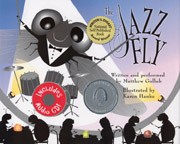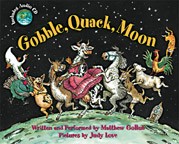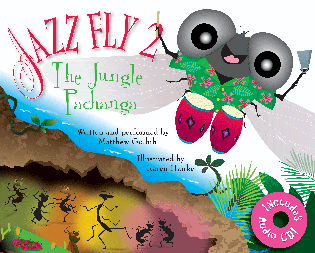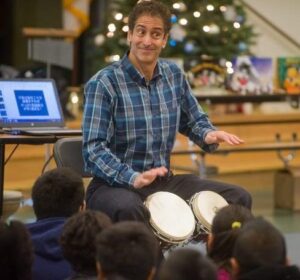This past weekend, I was privileged to speak at the Inland Empire Branch of the International Dyslexia Association. My first step in preparing was to familiarize myself with the basics of dyslexia: a neurologically-based learning disability that can affect word recognition, decoding, spelling and auditory comprehension. Regina Richards, the president of the Inland Empire Branch, provided useful tips beforehand for communicating with this audience. “Try not to combine or complicate instructions,” she told me. “If you’re asking dyslexic kids to follow directions, give them the directions one step at a time.” Good advice for any audience, not just kids with language processing challenges!
It turned out that a multisensory approach was a good way to address this particular group (which is probably why Regina thought to hire me in the first place). I performed musical stories while projecting artwork on the screen, involved the audience with chanting, clapping. I relied on drumming and other percussive sound effects to keep the wide ranging listeners engaged. The parents and their kids of ages 1-13 were so attentive that I actually presented for over an hour instead of the 45 minutes planned. When I mentioned how simple things can take extra time, the school-aged kids especially fell silent. In their silence I felt their sense of hurt and inadequacy that must color much of their classroom experience. In the end, they inspired me with their courage and understanding, so I sought to provide more encouragement in return.
Here is an excerpt from what I prepared for this group:
“How many of you like to write stories? A story is just something that happens to someone. It could be fiction or non-fiction, real or imagined….I believe that each of you is writing an original story just by living your own unique life. Your story has special meaning because you are the central character. And as any author can tell you, stories are more interesting when the main character faces some sort of challenge. Your struggle, your battle to overcome a challenge like dyslexia, in the end will make the story of your life more interesting.
“So what are some of the ways to deal with dyslexia?
“One important way is to join a community. By now, you realize you’re not alone. Millions of people around the world have dyslexia. There’s even a great big group of people called the International Dyslexia Association. They have a website at www.interdys.org which has lots of information and helpful ideas. And they work hard to help teachers understand dyslexia so that their students who have dyslexia can learn in ways that make sense.
“Another way to deal with dyslexia is to adjust our expectations so we don’t get frustrated. Let’s say, for example, that your teacher gives you a homework assignment and says that it should take 20 minutes. But really it might take 40 minutes, or even an hour, right? That’s OK. The kids who have to work longer and harder are often smarter and more successful when they grow up. And having to work harder and longer, in the end, makes these kids more interesting, as I was saying.
“I can think of two words for working harder and longer. One is determination. The other is persistence. What did Super Grandpa do in that story I just told you? He wasn’t young like all the other bicycle racers. He was 66 years old! This meant that it took him lots more hours to complete the thousand mile race. He pedaled at night while the young racers slept. He pedaled early in the morning while they were still eating breakfast. He was determined, and he persisted, and by not giving up, he found a way to participate in the race. Remember, he didn’t win the big, gold trophy. But by finishing the Tour of Sweden at his age, he touched the hearts of millions of people and changed the way people think.
“By now, I’ve talked about a few ways to overcome dyslexia. Once we get creative we can find many more. If reading a book is difficult, try listening to the book. Lots of books are recorded on CDs and MP3s. If the textbook you’re using doesn’t make sense, maybe try some interactive software. If speaking is hard, try singing. If it’s hard to sit still then study while moving around instead. Since our brains are all different, we can learn in different ways. And as you and your parents experiment, you’ll figure out ways that work best for you.
“Looking around the room at you, I feel hopeful. In fact, I feel more than hopeful. I feel certain that you all possess the creativity and persistence to overcome your reading challenges, as well as any other challenges that crop up along your path. I wish you all good luck and thank you for listening.”



 "Language, rhythm, color, life!"™
"Language, rhythm, color, life!"™